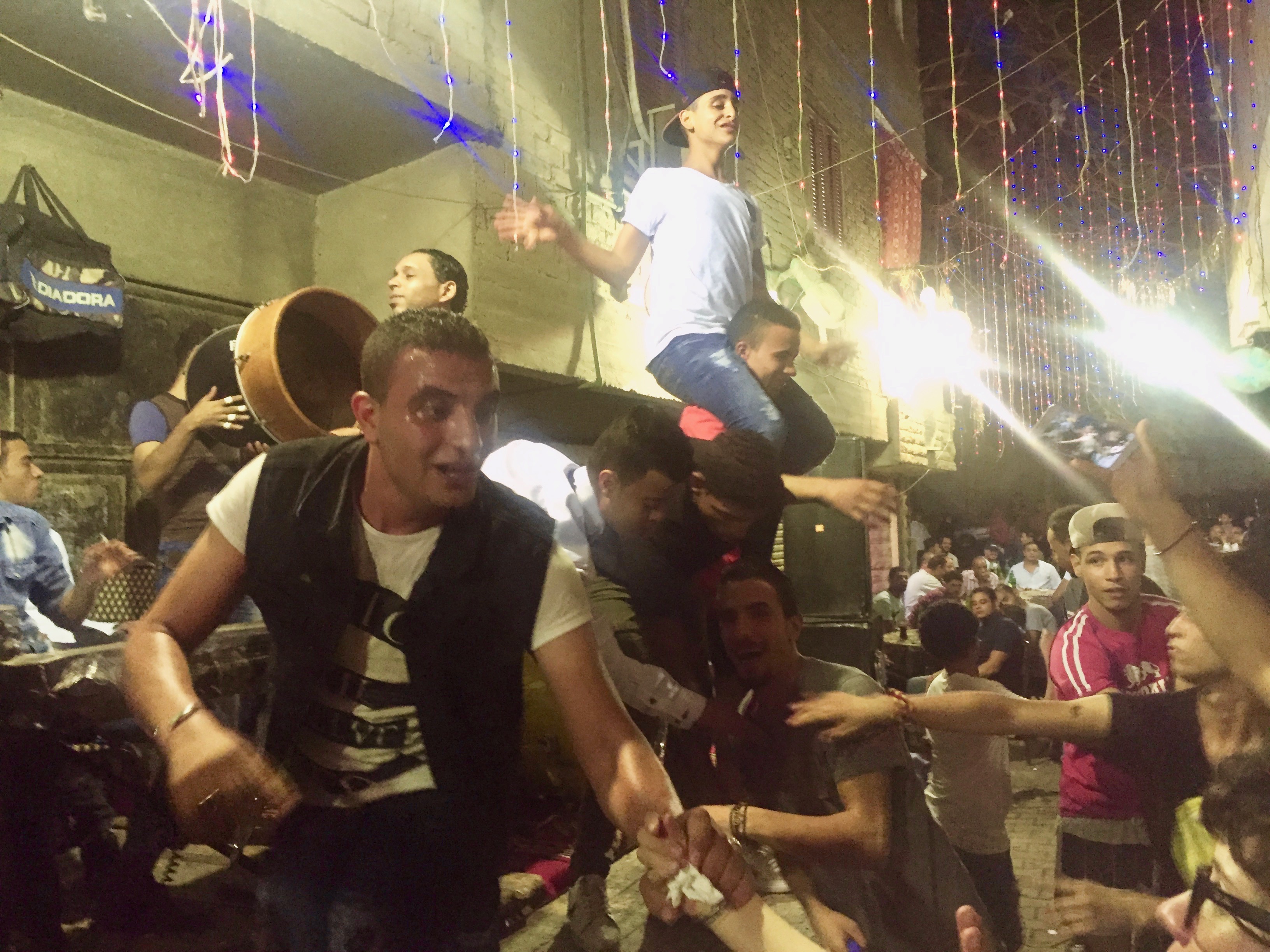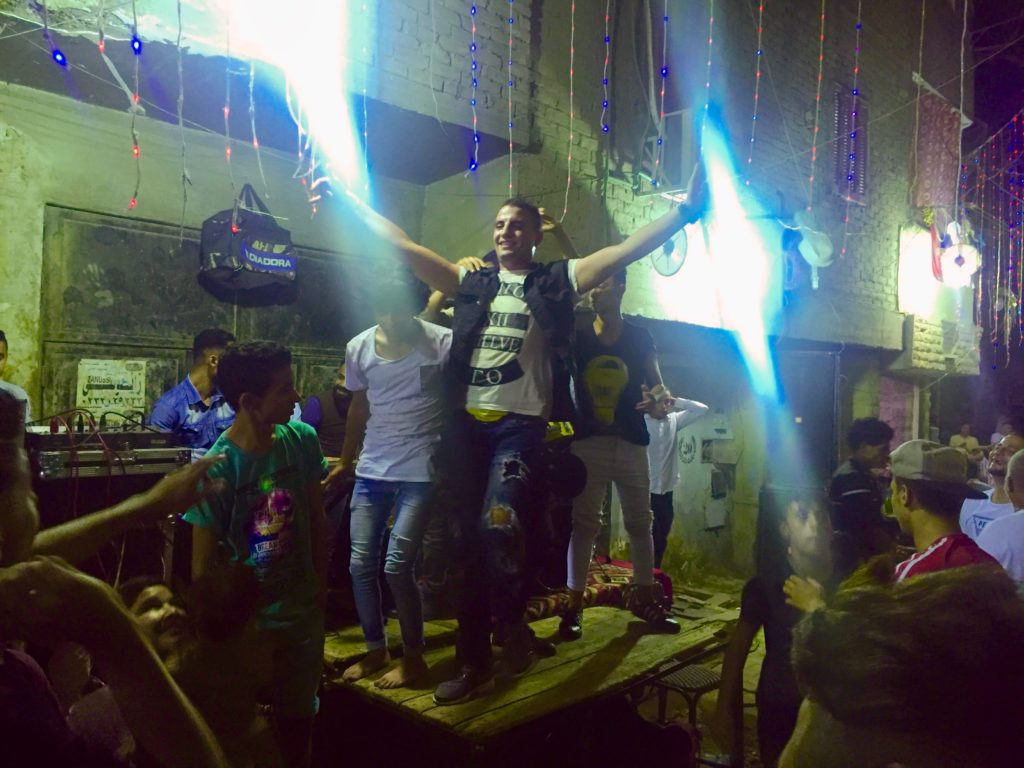“El ‘aroosa—the bride!” yelled the young man, grabbing my hand and pulling me in the direction of the newlyweds as a beat pounded from the sound system. I looked to my friend and we got up from our chairs, bracing ourselves to join the chaotic free-for-all of a wedding party unfolding on this late Saturday night in Cairo.
Fellow journalist Alessandra Bajec and I had just eaten some Syrian food to commemorate Eid al-Adha, a religious holiday celebrated across the Islamic world. On a whim we decided to take a taxi up to Imbaba, a densely populated shaabi (popular) area in the Egyptian capital. We disembarked outside the famed restaurant Kibdat El Prince. It was closed for the holiday, but the streets were filled with vendors selling kitschy baseball caps and fashionable off-brand T-shirts imported from China. Families were playing on giant swings and other carnival rides. Tuk-tuks and microbuses were tearing down the street at frightening speed as young men popped wheelies on bikes and motorcycles.
On a festive night like this, it’s probably inevitable that we would stumble across a wedding party. Set up in a wide alleyway, a band called Fareeq Al-Ahlam (The Band of Dreams) had set up on a squat, splintered wooden stage—a keyboardist jamming alongside a drummer, who was throwing down beats on a canary-yellow kit while a DJ played the latest mahraganat hits. The bride lounged on a separate stage with a coterie of friends and family, while the groom and his boys were massed around the music, taking selfies, chugging sodas, spilling drinks, twirling and dancing with a knife their hands, one of them climbing on his buddy’s shoulders, everyone clapping and cheering and jostling around in delirious expressions of joy.
I moved to Cairo nearly a year ago to experience music like this. I’d first heard about the street music of shaabi areas like Imbaba when I saw a grainy YouTube clip of Islam Chipsy in 2011, sent to me by Banning Eyre from Afropop Worldwide only months after the revolution that overthrew Hosni Mubarak.










